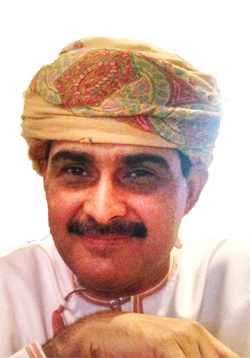

SALEH AL SHAIBANY - saleh_shaibani@yahoo.com - A well-organised public transport will significantly reduce road congestions and fatalities as well as cost saving to the maintenance of the highways. According to the Road Traffic Department, up to three million vehicles pass through Oman’s highways per month. At the same time, over 7,500 cars are bought on average every month. Statistics also show that the government has spent an average of RO 1.28 billion per year on road networks and maintenances in the last ten years.
Although the death rate in the first eight months of this year has reduced by 6 per cent, official statistics still show that 53 people on average died on the roads per month up to August 2017.
Mwasalat, the existing public transport system is doing a commendable job but it needs to be expanded. What is needed on top of that is a more efficient network of trams and parking terminals for drivers to leave their cars and travel to work by the public transport.
Our roads will be congested even further as more graduates leave higher education to get jobs.
They all travel using the same roads. It does not make economical sense to build more roads that would be congested in just a few years as population increases. Trams and trains are safer and cheaper to maintain. They also reduce the harmful carbon monoxide to the environment.
Oman is already investing in ferry terminals which would help take up the burden for people working along the coast.
One of the many benefits of a good network of public transport is that the project will create tens of thousands of jobs in the long run. It will also create a new industry, not just for employment, but for entrepreneurship as well.
Since metros run faster than a car, workers will reach their offices in time, which means less tardiness at workplaces. They will also return home much earlier to spend more time with their families. Various researches on people using the public transport show that they lead a healthier life because it is eliminating driving stress.
Hours of road concentration for most of your working life takes a toll on one’s health. Doctors say stress is a major cause of stomach ulcers, high blood pressure and coronary diseases. These three diseases are very prevalent in Oman.
Stress removing will cut down medical expenditure of the Ministry of Health since Omani citizens don’t pay for medicines, a burden that is normally shouldered by the government.
The half an hour you spend on the metro each way from or to work gives you time to catch up with your office papers, taking a nap, reading newspapers or just relax.
The other benefit is that drivers will also save money now petrol prices have gone up by more than 70 per cent. Since Oman is seen as a nation of debtors, saving money in any way is something highly desirable.
There is another benefit. More cars on the roads don’t only mean smoke pollution but noises.
As Oman rapidly expands because of a fast growing population, more properties are built near the roads, which cause disturbances to owners.
A metro system is either built underground or bridges between existing lanes and they run almost noiselessly. On short-term, it will involve a major initial financial layout to build a comprehensive system. However, in long-term view, it will be an investment in the right direction.
It will also be an advantage to those who cannot afford to own cars, mostly expatriates. In conclusion, an efficient public network has many advantages, from the financial point of view, cost saving to commuters and safety issues.
Oman Observer is now on the WhatsApp channel. Click here



